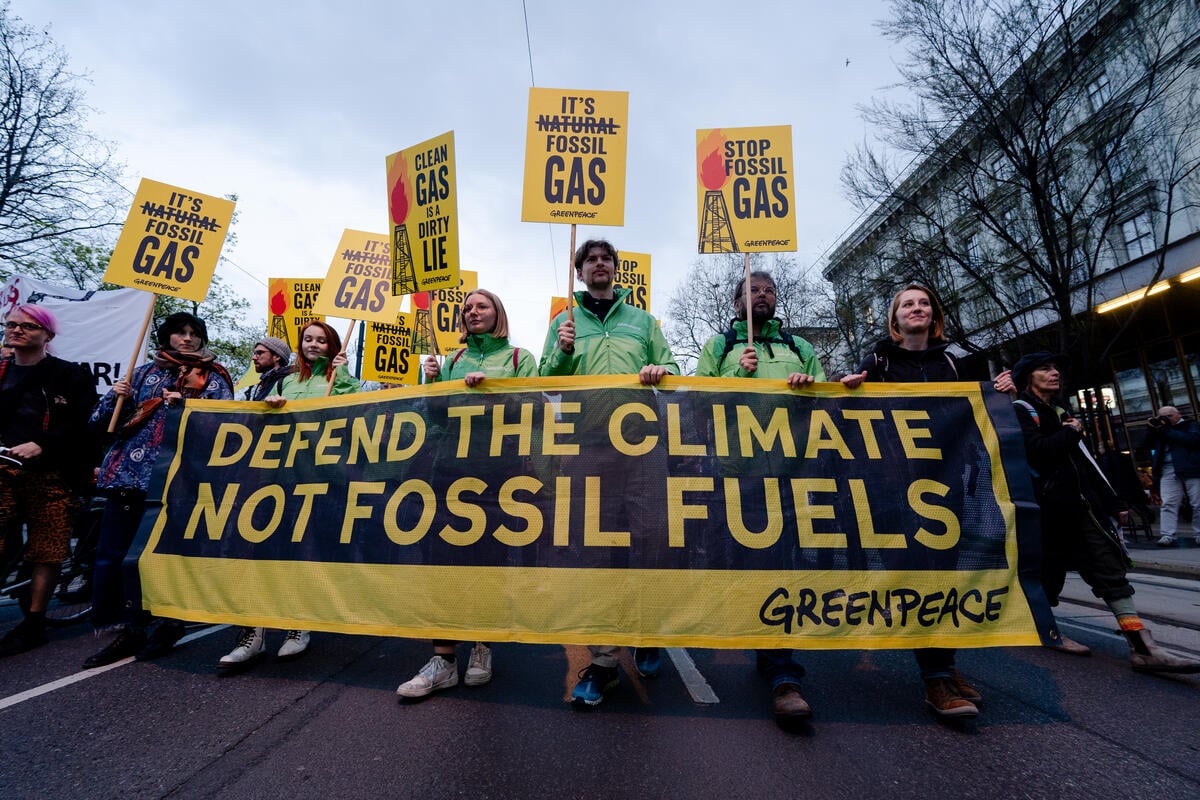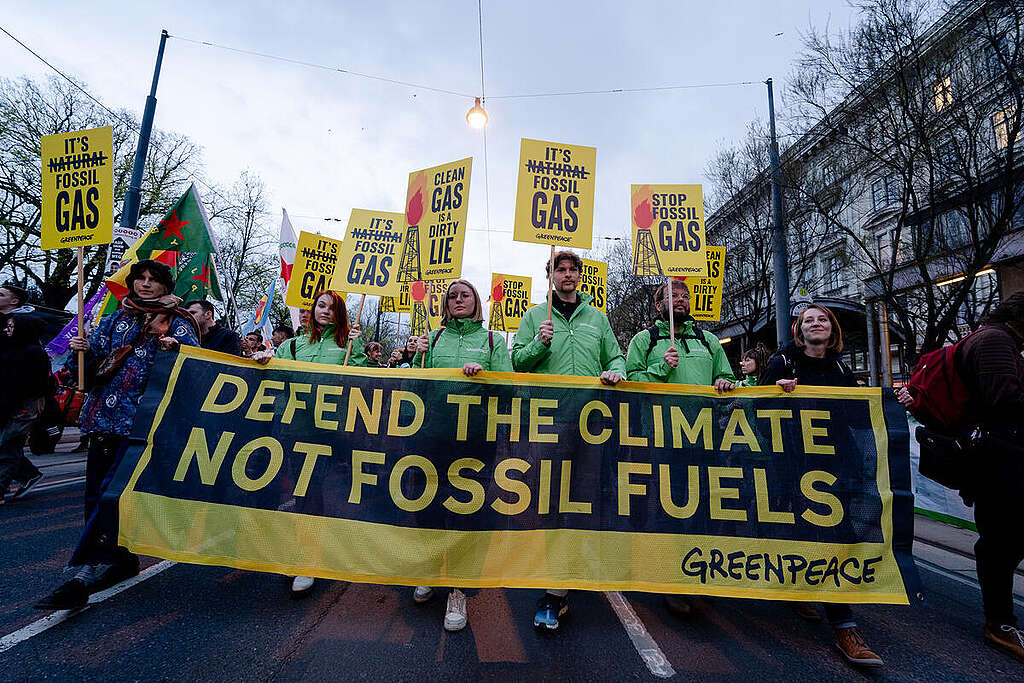
About 80% of the world's energy still comes from fossil fuels. This reliance is a huge risk for us. Not just because gas, oil and coal are fuelling the climate crisis, but also because it makes us unsafe in many ways. Real energy security can only be achieved with 100 % renewables. Here's why.
1. Fossil fuels threaten national sovereignty and security
Some countries have a lot of fossil fuel resources, others don't. In a world where the majority of energy comes from fossil fuels, fossil fuel rich countries hold the power. Major oil and gas economies have been able to act with impunity, with the examples of Russia or the US flouting global mechanisms like the International Criminal Court, and Saudi Arabia or the US bullying poorer nations at the annual UN global climate talks (UNFCCC COP). Trump's attempts to pressure the EU into new gas deals, using tariff threats and flouting World Trade Organisation rules, is another perfect illustration.
Whether it's oligarchs funding wars or political strongmen using gas as leverage, fossil fuel dependency makes democracies weaker, not stronger.
2. Oil and gas corporations cash in, household budgets suffer
In 2022, the five biggest oil and gas companies (BP, ExxonMobil, Chevron, Shell and TotalEnergies) together posted $200 billion in profits. Some made record-breaking earnings while ordinary households were drowning in skyrocketing energy bills, contributing to the cost-of-living crisis. As war, inflation, and corporate greed drove up prices millions of people struggled. Electricity and gas prices have jumped by around 50% for European consumers in recent years, and more than 1 in 10 Europeans can no longer afford to heat their homes. Renewables are already cheaper than gas power generation and they proved to push down the wholesale prices of electricity.
The fossil fuel system is built for profit, not for people.
3. Fossil fuels threaten communities' safety
Fossil fuels exploration and infrastructure such as platforms, pipelines, LNG terminals or refineries can generate earthquakes, oil spills, explosions and fires, creating direct threats to health and security of local communities. A striking example is fracking. This controversial method of extracting gas is particularly polluting and harmful, possibly leading to low birth weights, asthma, lymphoma and other diseases. In the US, a gas pipeline accident occurs every 40 hours. Onshore fields can cause chronic earthquakes damaging homes and buildings, just like in the Netherlands where a gas field was shut down for the safety of local populations.
Whether imported or locally made, fossil fuels are harming us and endangering our future.
4. Fossil fuels are a threat to peace: empowering authoritarian regimes and fuelling war
The biggest fossil fuel producers act with impunity, contributing to war and human rights abuses. Putin's invasion of Ukraine made one thing crystal clear: fossil fuels are more than just an energy source, they're a political weapon. Every barrel of oil or cubic meter of gas imported from Russia finances Putin's war chest, prolonging the war in Ukraine. A report found that even last year the EU paid more for Russian fuels than it gave in aid to Ukraine.
The fossil fuel industry is a serial killer with a long history of war, fuelling multiple conflicts.
5. Fossil fuels worsen climate chaos and exacerbate extreme weather
Fossil fuels are the number one driver of climate change, responsible for around 75% of global greenhouse gas emissions. And just 36 fossil fuel companies are responsible for half of global CO2 emissions. Their polluting business has contributed to at least 12,000 extreme weather events in the past 50 years, killing two million people, with lowest income countries bearing 90% of this unimaginable loss.
To avoid the worst climate chaos, we must switch off fossil fuels and their climate wrecking pollutants.
6. Fossil fuels are blocking the shift to energy security and independence
Oil and gas corporations, together with fossil fuel-rich nations, keep expanding fossil fuels and pushing for more fossil fuel infrastructure to continue their dirty business, locking us into a dirty, expensive system for decades to come. All money spent on new fossil fuel infrastructure is money we're not investing in solar panels, wind turbines, batteries, energy waste cuts or grid upgrades.
Fossil fuels are delaying the transition and deepening the very crises we're trying to solve: climate, cost-of-living and energy insecurity.
It's time to break free from fossil fuels
As global tensions mount and oil and gas CEOs continue to rake in record profits while people struggle, it's clear: governments must take back control of their energy future, keep prices predictable and cut reliance on regimes that undermine democratic values.
The European Union and its member states must treat the climate and ecological emergency like the existential crisis it is.
The solution: no more fossil fuel projects. No new pipelines. No new gas terminals. No new drilling. Instead, we need to massively invest in clean, local, affordable renewable energy that serves people, not polluters. Renewable energy technology is the only way people can be an active part of an energy system, allowing for shared ownership and less centralisation, thus minimising the chance for price manipulation and increasing energy independence and stability.
Breaking free from fossil fuels is not just about keeping the lights on, it is about securing our collective well-being, safeguarding human rights and democracy, and ensuring long-term stability. It is an act of resistance.
Manon Laudy is a media coordinator with the Fossil-Free Future campaign at Greenpeace Netherlands.

 (@greenpeace)
(@greenpeace)





